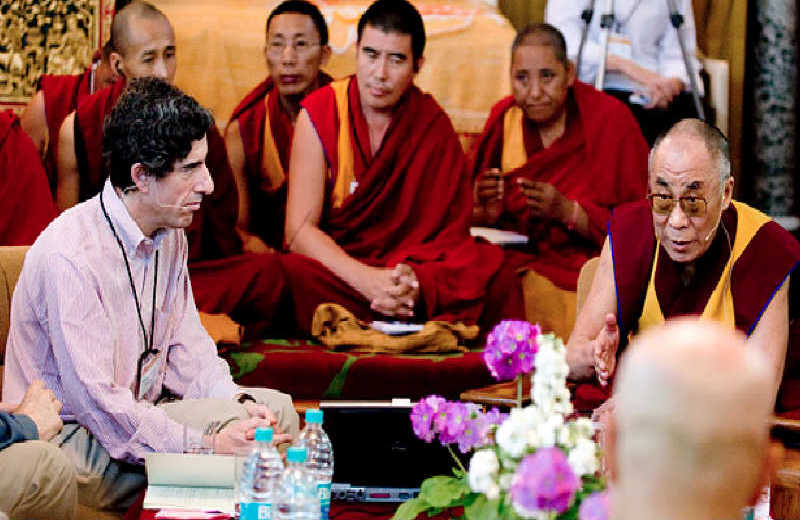 Dharamshala: - The 13th Mind and Life conference, which began today in Dharamsala, northern India, has brought together the spiritual leader of Tibet, His Holiness the Dalai Lama, contemplative scholars, activists and ecological scientists to discuss the interconnection between individual choices and environmental consequences.
Dharamshala: - The 13th Mind and Life conference, which began today in Dharamsala, northern India, has brought together the spiritual leader of Tibet, His Holiness the Dalai Lama, contemplative scholars, activists and ecological scientists to discuss the interconnection between individual choices and environmental consequences.
In a statement on the conference website, the organizers said, "The slow meltdown of Earth's capacity to sustain much of life as we know it poses an urgent challenge for both spiritual traditions and science. These two ways of knowing have developed distinctive responses, which are potentially synergistic.
"The goal of the meeting is to provide an opportunity to articulate an engaged environmental ethics."
Addressing the opening session, His Holiness said that, although he has stepped down as the Tibetan Parliament-in-exile's leader, he is still committed to involvement in events such as the conference, in order to promote human values.
He went on to expound on science, ethics and interdependence, saying that science has a duty to first establish facts, without being concerned with "right or wrong, positive or negative", and then look at the implications of those facts.
He said that the philosophy of interdependence has a similar role - to explain reality - and that when we investigate emotions such as anger, fear, suspicion and distrust, "we have no idea if anger is bad or compassion is good," but that we must examine their effects.
"Things exist due to other factors...with no idea of good or bad - just reality," said His Holiness.
He continued that, "Everybody here agrees there are a lot of problems on this planet," and mentioned his shock at the recent civil unrest in Britain, and his sadness that aid workers who are helping flood victims in Pakistan will imminently run out of money.
His Holiness concluded that, "Certainly there can be less suffering," if contingency plans are made for natural disasters, but that, of all the world's problems, corruption has the most serious effect - that, "It is like a cancer, affecting the whole of humanity, and comes down to a lack of ethics and self-discipline."
The conference, which runs until October 21, includes scholars and researchers from Emory University, Rutgers University, Vancouver School of Theology, the Applied Sustainability Center at the University of Arkansas, and Texas A&M University.


![Tibet has a rich history as a sovereign nation until the 1950s when it was invaded by China. [Photo: File]](/images/stories/Pics-2024/March/Tibet-Nation-1940s.jpg#joomlaImage://local-images/stories/Pics-2024/March/Tibet-Nation-1940s.jpg?width=1489&height=878)















